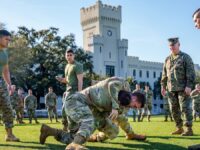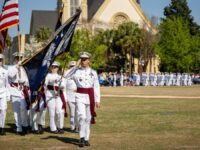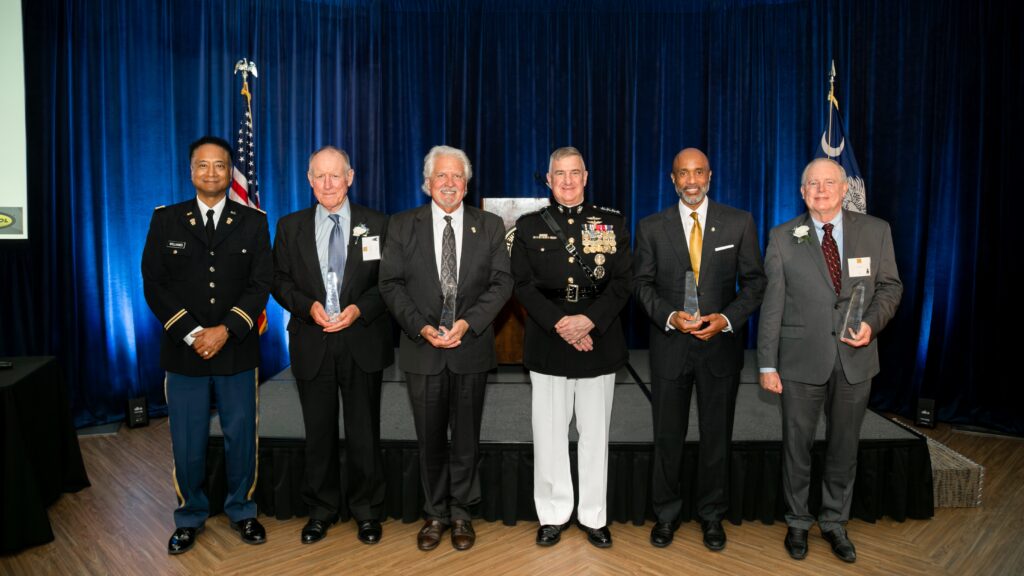
In its 13th year, The Citadel School of Engineering inducted four new members into the Academy of Engineers on April 3 — Carlos J. Coe, ’80, James R. Martin II, ’85, Steven W. Roll, ’80, and William States Lee, Class of 1894, who was posthumously inducted. His great-grandson, William States Lee IV, accepted the award on behalf of the family.
The event was co-sponsored by Duke Energy and North Carolina Agricultural and Technical State University. In addition, the Young Alumnus of the Year Award was presented to Lt. Matthew Fann, USCG, ’12. The school also recognized the retirement of longtime faculty members Robert Barsanti, Ph.D., and David Greenburg, Ph.D.
The Citadel Academy of Engineers honors engineering leaders from both the public and private sectors who have enjoyed substantial success in their professional lives and made significant contributions to their communities. All of the inductees have lived a life consistent with The Citadel School of Engineering’s mission, which is to educate and develop principled engineering leaders to serve a global community. Additionally, each inductee embodies The Citadel’s core values of honor, duty and respect by building the reputation of engineering education excellence, modeling responsibility for student-centered success and giving mutual respect in The Citadel’s inclusion of all students.
“We are honored to have such distinguished alumni recognized for their outstanding engineering leadership, said Andrew Williams, Ph.D., dean of the School of Engineering. We are excited to induct a University Chancellor, entrepreneurs, leaders, and to posthumously induct an 1894 engineering graduate who made an enormous impact as a co-founder of the company that became Duke Energy.”
The 2025 Academy of Engineers inductees are:
Dr. Carlos J. Coe, ’80
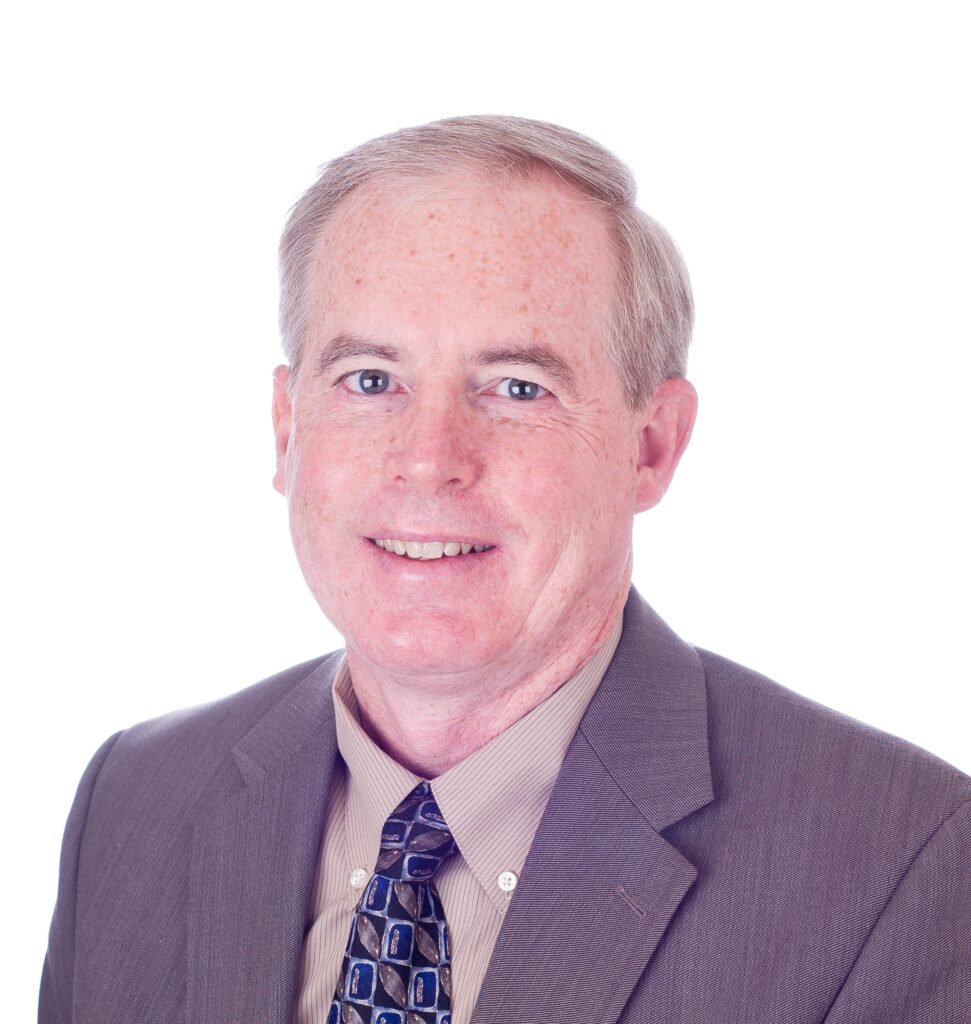
Dr. Carlos J. Coe currently serves as Principal of Seebury, a waste-to-value and green hydrogen development company and the Managing Director of Millennium Energy which develops, owns and operates Renewable and Waste to Energy power plants. Previously, Dr. Coe was the CEO of Xtreme Power which pioneered large-scale energy storage, including the development of next generation battery and inverter technologies.
Dr. Coe also served as an Executive Vice President with Whirlpool, leading a global business unit in refrigeration and air conditioning with over 20,000 employees in North America, South America, Europe and Asia. Before Whirlpool, Dr. Coe led JV’s for Ford and Ford Aerospace in aerospace and materials technology including technologies for Space and Electric Vehicles. Dr. Coe led the development of advanced sensor technology used in aerospace and vehicles today, including imaging, LIDAR, and airbags.
Dr. Coe began his career as a Military Intelligence Officer assigned to JCMI (now J2) developing global threat assessments and as Regional Intelligence Officer of Central America, South America, and the Caribbean. During the first Gulf War, he led the team that provided Real Time Target Assignments and Assessments. The use of precise weapons greatly reduced collateral damage and casualties while increasing mission effectiveness. Dr. Coe’s other assignments included post-Soviet Risk Assessment and Radical Terrorist Group Risk Assessments. Dr. Coe’s last post was in 1999 as a Lieutenant Colonel in the Reserves.
Dr. Coe has also been very active with several non-profit organizations. He served two years as Executive in Residence for the United Way National Office and led several national fundraising campaigns. He also served 10 years on the Austin Board of Habitat for Humanity and continues to serve as a senior advisor to their board. Dr. Coe continues to serve in an advisory role for Edify, which provides educational resources to over 50 countries.
Dr. Coe earned a Bachelor of Science in Civil Engineering from The Citadel in 1980 and completed Master of Science and Ph.D. degrees in Engineering from Princeton University in 1985. Dr. Coe serves on The Citadel Engineering Advisory Board. He is a member of several honor organizations including Phi Kappa Phi, Tau Beta Pi, and Who’s Who International. Dr. Coe has received numerous awards including SAME – Engineer of the Year, Ford’s Young Executive Award, Whirlpool’s Top Executive Award, and Texas’ Top Entrepreneur of the Year Award. Dr. Coe is the principal or co-inventor of over 25 patents, several of which are noted as the founding patents for new technology areas.
Dr. Carlos Coe has been married to Trisha Taylor since 2001. Together they have 4 children and 3 grandchildren.
Dr. James R. Martin II, ’85
James R. Martin II, Ph.D., M. ASCE, was elected the 13th chancellor of North Carolina Agricultural and Technical State University on June 21, 2024, by a unanimous vote of the University of North Carolina System Board of Governors. Dr. Martin previously served as vice chancellor for STEM Research and Innovation at the University of Pittsburgh, where he drove initiatives ranging from developing the university’s core STEM landscape to leading research strategy and development for Pitt’s four regional campuses around Pennsylvania. Prior to being named vice chancellor, Martin served Pittsburgh’s U.S. Steel Dean of Engineering. Under his leadership, Pitt’s Swanson School of Engineering achieved unprecedented milestones, logging record research expenditures, doctoral and first-year student enrollment and diversity in faculty and student representation.
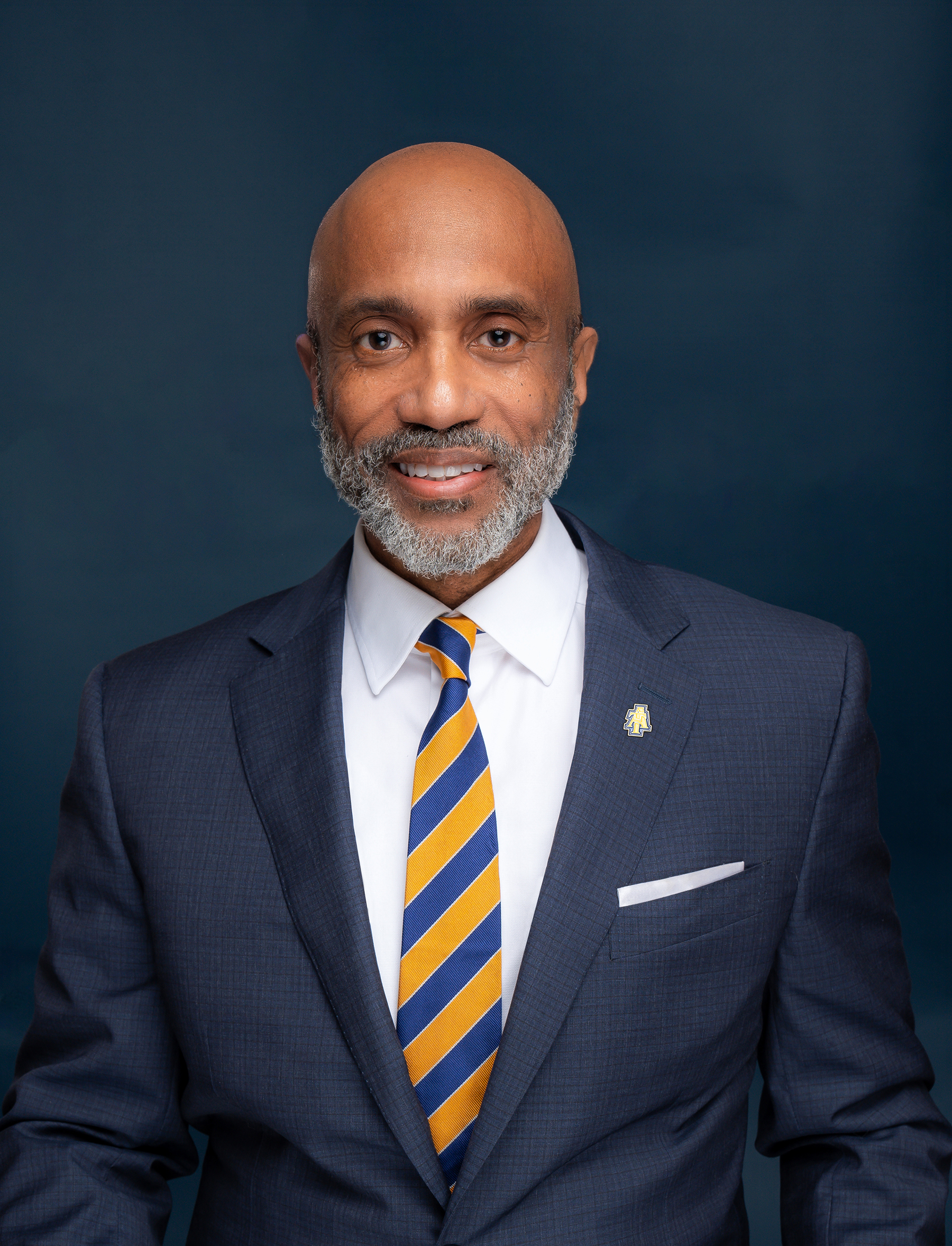
Prior to Pittsburgh, Martin was Clemson University’s Bob Benmosche Professor and Chair of the Glenn Department of Civil Engineering. He also served as founding director of the Risk Engineering and Systems Analytics Institute, a pioneering collaboration between academia and industry.
Chancellor Martin began his career at Virginia Tech as a professor of civil engineering and served for six years as a center director. He built an international reputation for his work in geotechnical earthquake and risk engineering, research that had a significant impact on building codes around the world. Leading global field teams following major earthquakes, Martin contributed to major studies in Turkey, Japan and throughout the United States while serving as director of the Disaster Risk Management Institute at Virginia Tech.
Chancellor Martin earned a B.S. in civil engineering from The Citadel and completed M.S. and Ph.D. degrees in civil engineering at Virginia Tech. He has received numerous national, state, and university awards for research, teaching, scholarship, and service, including the American Society of Civil Engineer’s Norman Medal, the highest honor for published work in his field.
Steven W. Roll, ’80
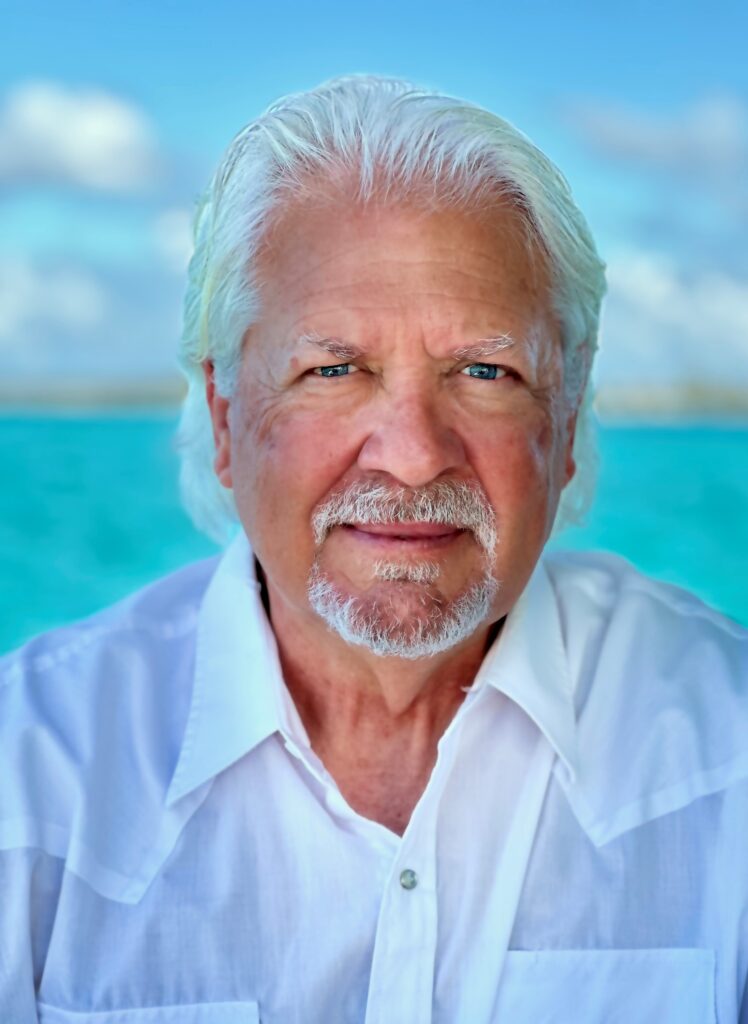
Steven W. Roll graduated with a Bachelor of Science in Civil Engineering from The Citadel in 1980 and was student president of ASCE, and a member of Tau Beta Pi.
He is a Project Management Professional and continued his education throughout his life attending University of South Carolina, University of New Orleans, Rice, Northwestern, Thunderbird (France) and National University of Singapore, studying international business, engineering, leadership and project management. Roll has lectured over the years at University of Texas, University of Houston, NUS, & USC at undergraduate and graduate levels.
After leaving The Citadel, Steven Roll went overseas on a “6-month” assignment in the oil & gas industry to Borneo, East Malaysia and returned “home” over 30 years later after assignments in Asia, the Middle & Far East, Africa, Europe, the UK and North & South America.
He started his career as a design and field engineer for McDermott International, with challenging assignments in remote locations and advancing levels of responsibility and management, peaking with executive leadership positions, leading organizations worldwide with more than 10,000 employees and multi-billion-dollar enterprises. Roll led the creation of multiple international oil & gas ventures, primarily in offshore & deep-sea marine environs. He was a leader in the National Ocean Industries Association, the US-ASEAN Business Council and numerous international industry groups, receiving diplomatic recognition for his efforts. Steven Roll concluded his career as President of Cameron International Process Systems, the leader in complex oil & gas production and processing; Cameron was sold to Schlumberger in 2016, and Roll retired in 2017.
Philanthropy is a core tenet of Steven’s life, and he sits on various charitable boards. He considers his greatest philanthropic achievement the founding of The Batam International Charity, devoted to building orphanages and schools on remote islands in Indonesia.
Roll attributes his success to the principles instilled during his years at The Citadel, and he remains active and committed to furthering the mission of the college, and the School of Engineering.
William States Lee, Class of 1894
William States Lee was born in Lancaster, S.C., in 1872. He graduated from The Citadel with a degree in engineering in 1894 and served in the engineer corps during the Spanish-American War. He helped found Southern Power Co. (later Duke Power) in 1904 and became the company’s first chief engineer. He also operated an independent consulting firm, the William States Lee Engineering Corporation, with offices in New York and Charlotte, N.C. Lee designed and supervised construction of at least 32 hydroelectric power stations throughout the Carolinas during the 1910s and 1920s. Mr. Lee also designed seven steam-electric stations and is credited with being the first engineer to demonstrate the feasibility of transmitting power by wire over long distances.
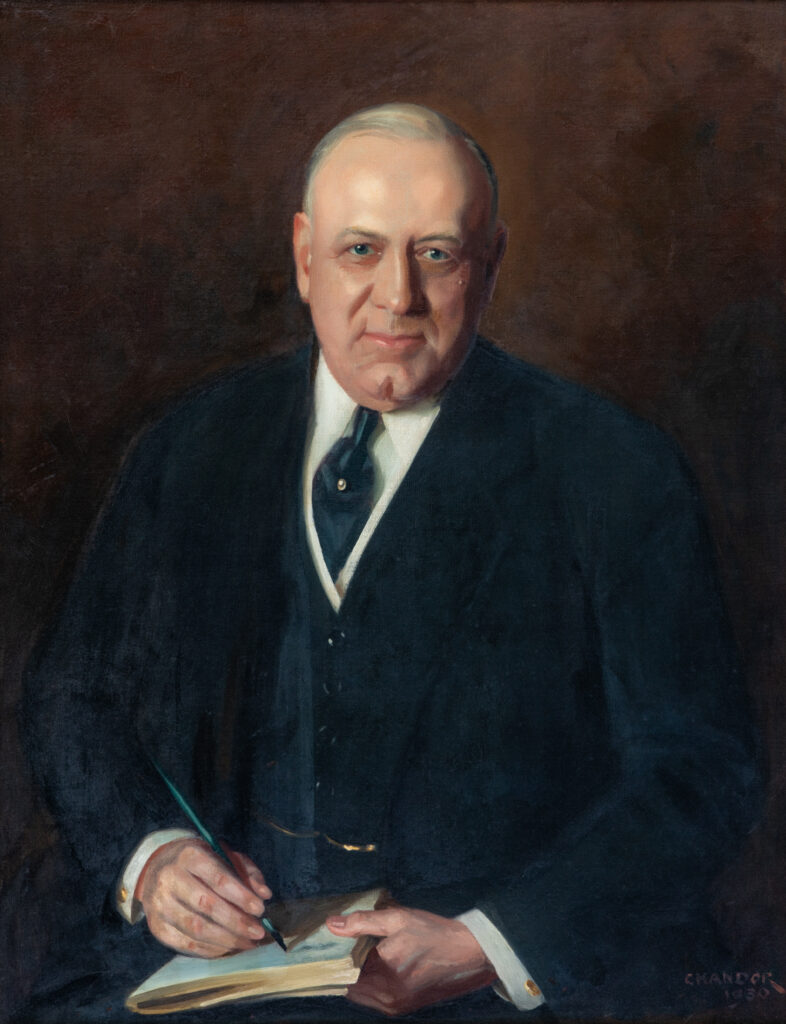
Mr. Lee was named an original Trustee of The Duke Endowment and served as Trustee from 1924 until 1934. He died in Charlotte, N.C., on March 24, 1934. Mr. Lee is seen as a key figure in the 20th century development of the Carolinas.

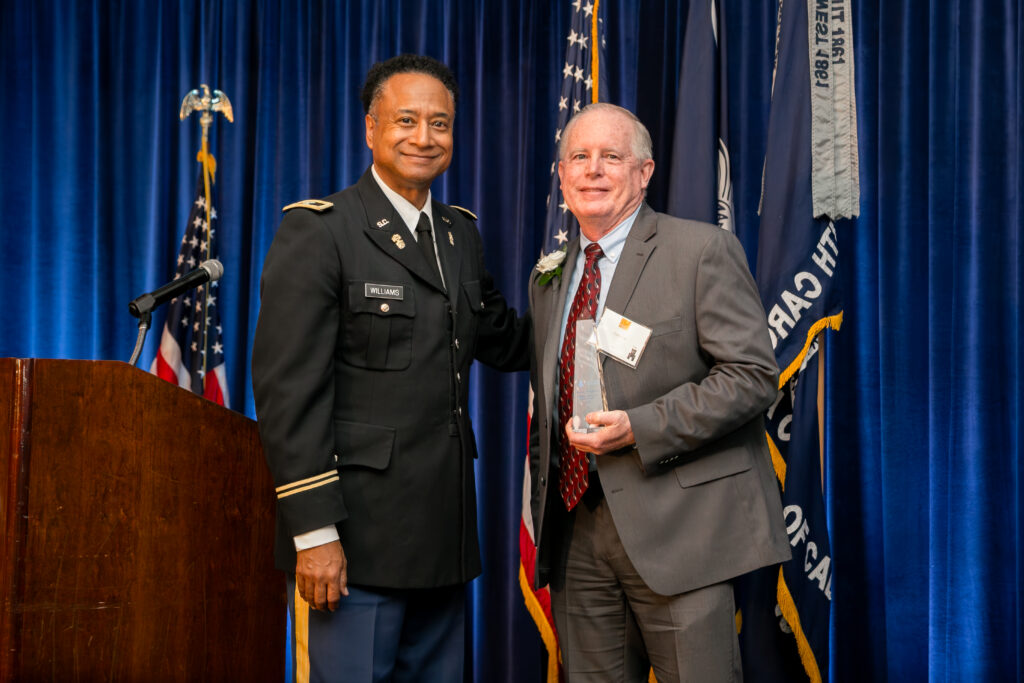
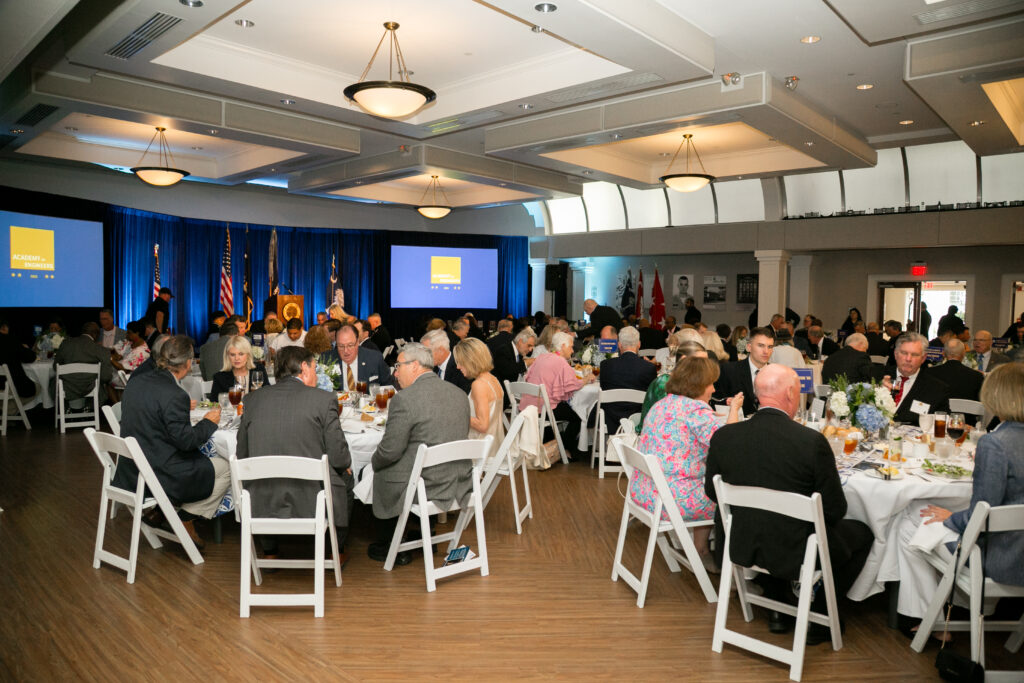
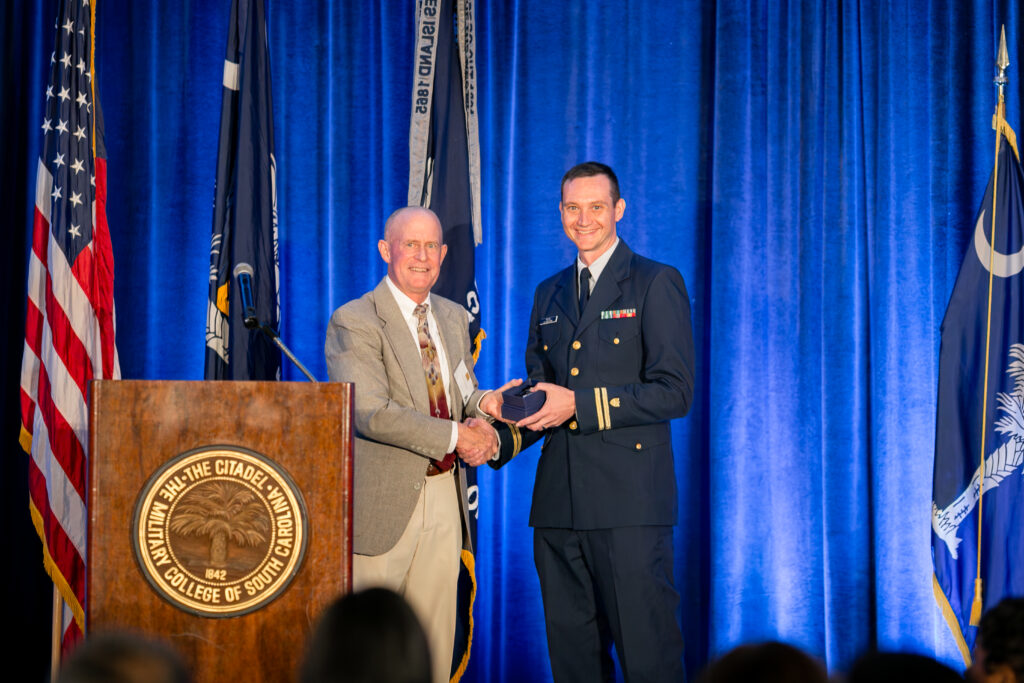
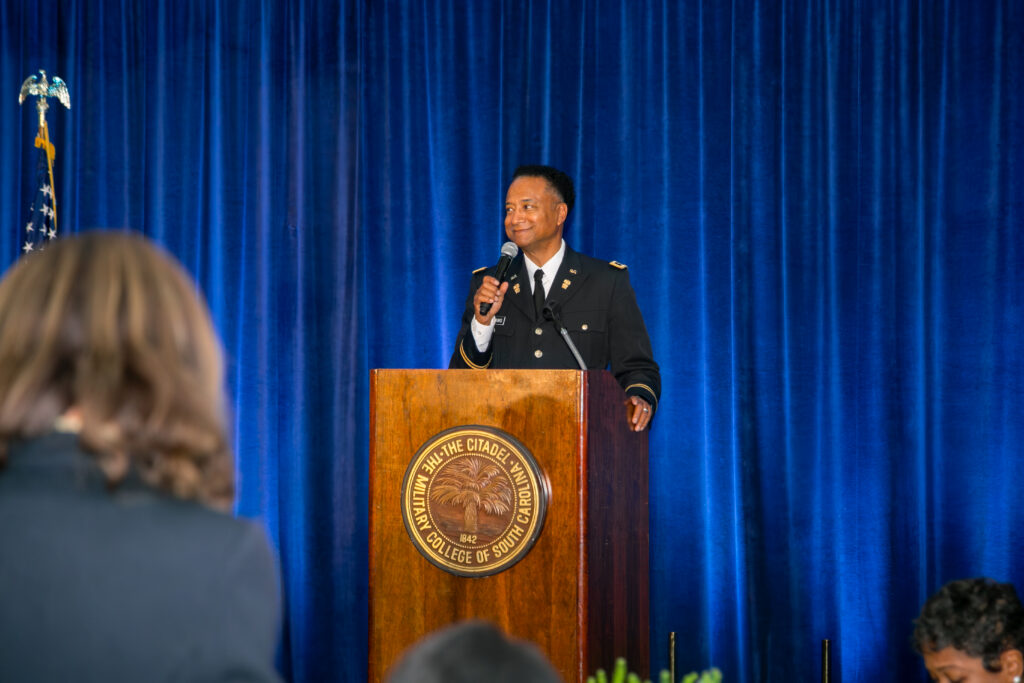
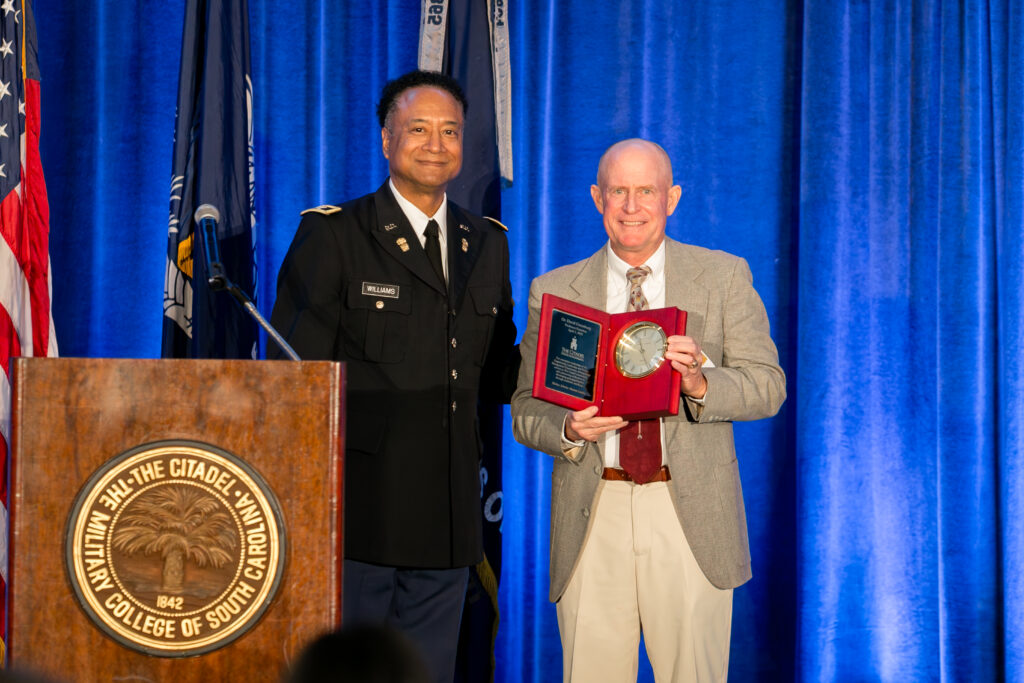
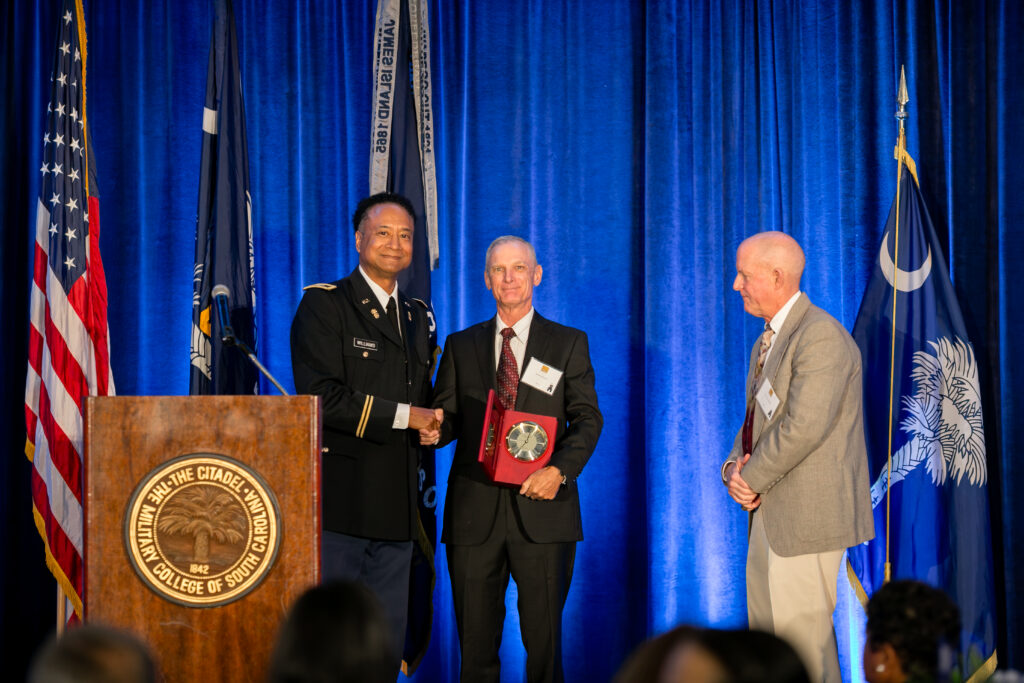
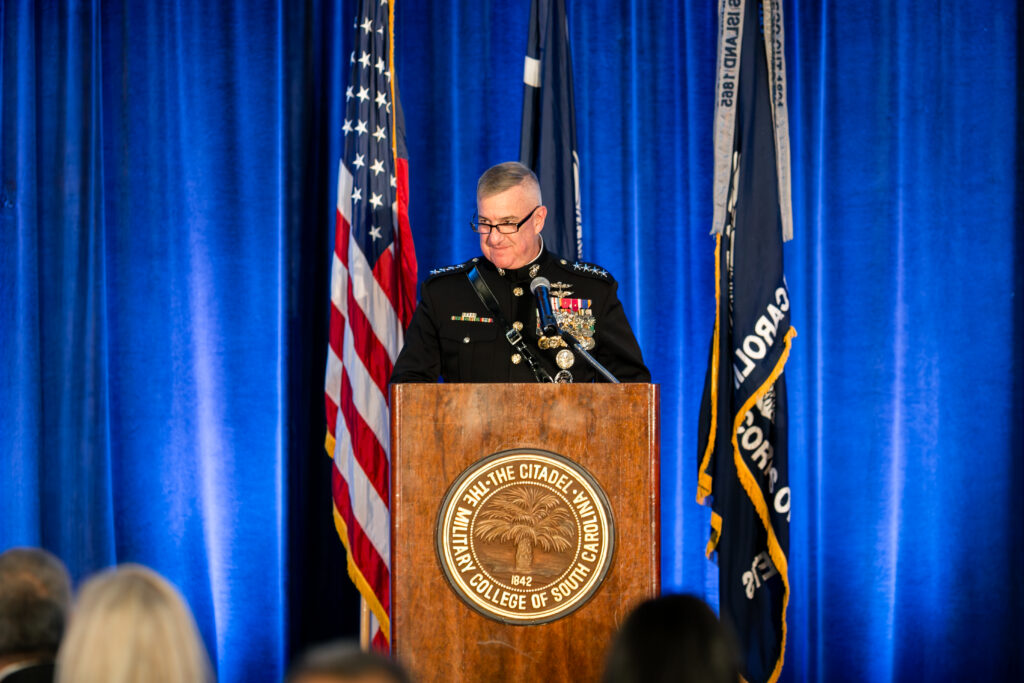
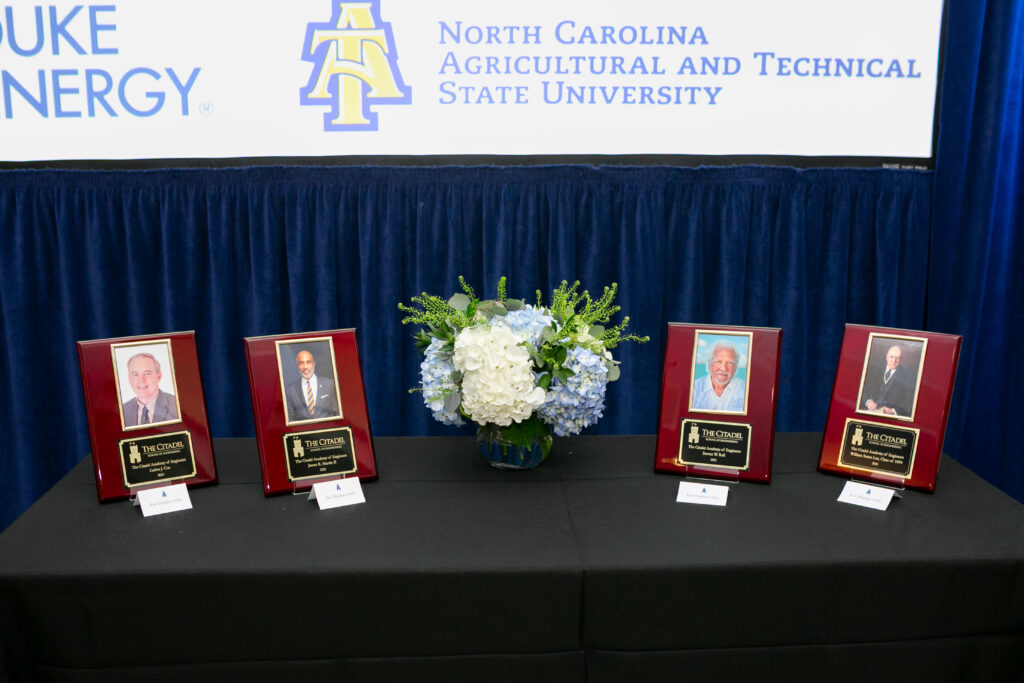
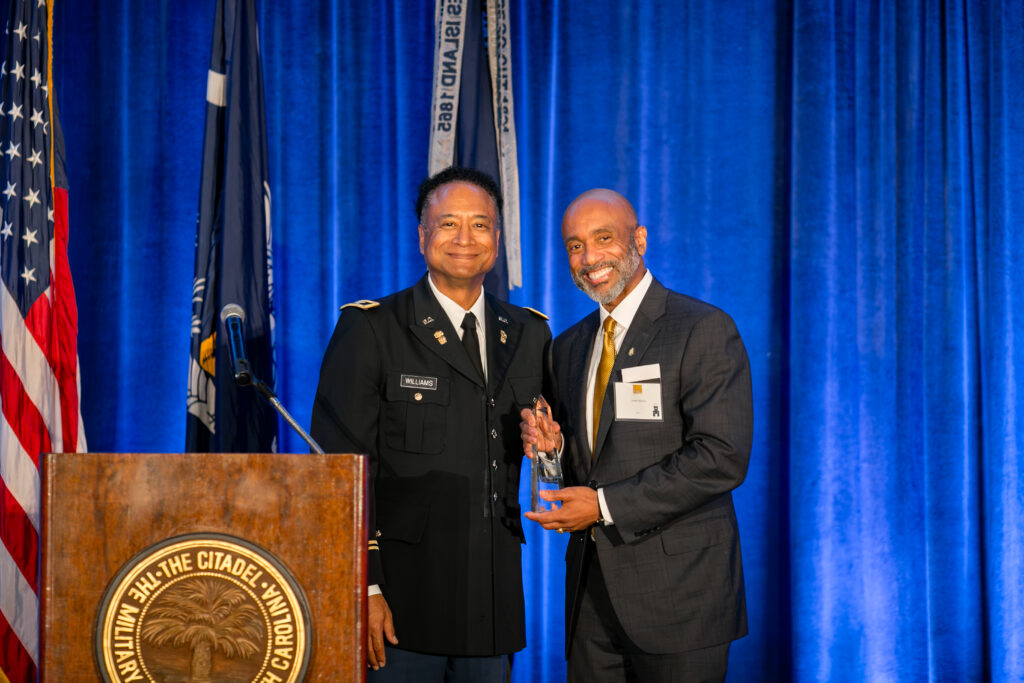
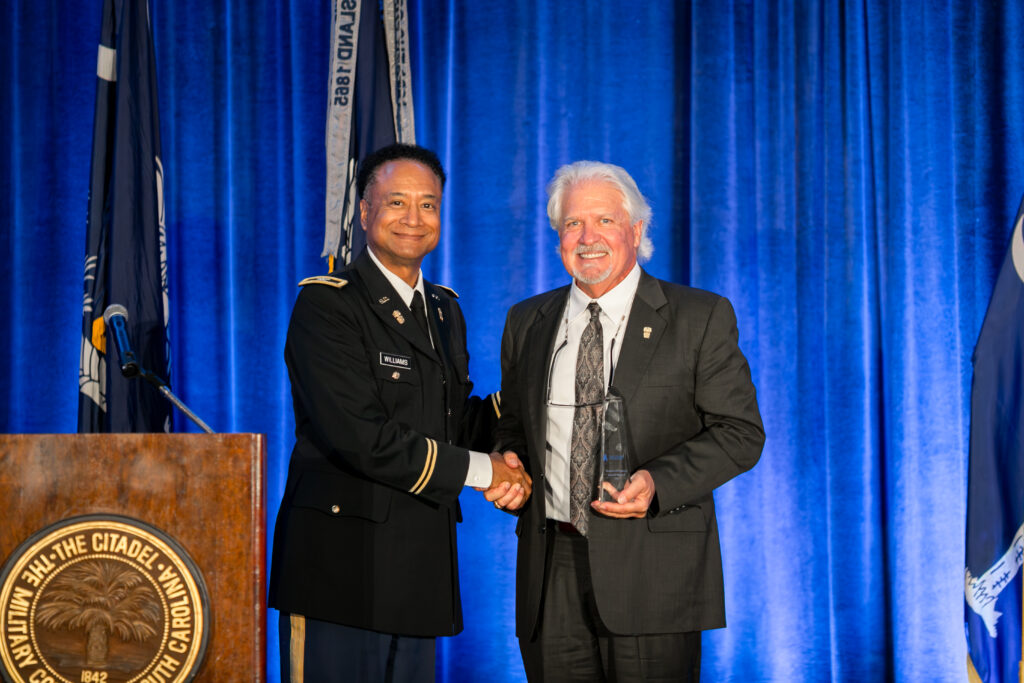
 Moore Art Gallery opens “All Hands on Deck” WWII naval photography exhibit
Moore Art Gallery opens “All Hands on Deck” WWII naval photography exhibit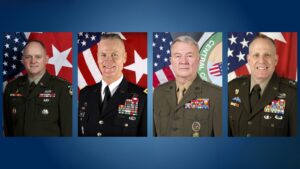 The Citadel’s presidential search committee announces four finalists
The Citadel’s presidential search committee announces four finalists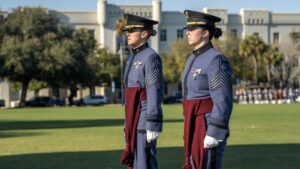 Prestigious Cincinnati and MacArthur awards presented to Citadel cadets
Prestigious Cincinnati and MacArthur awards presented to Citadel cadets